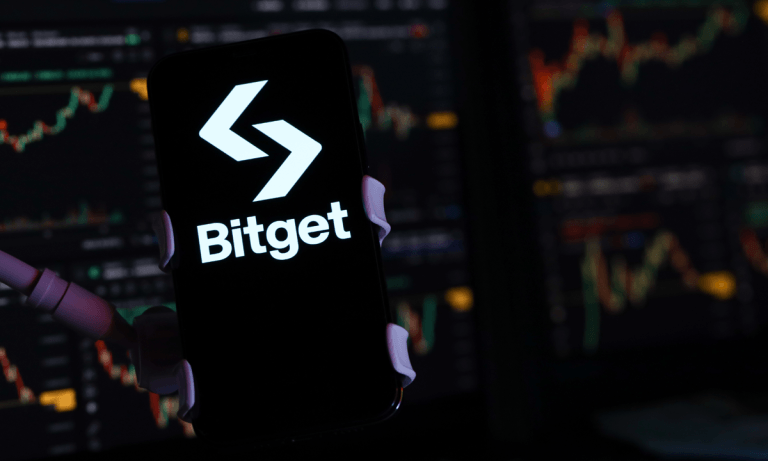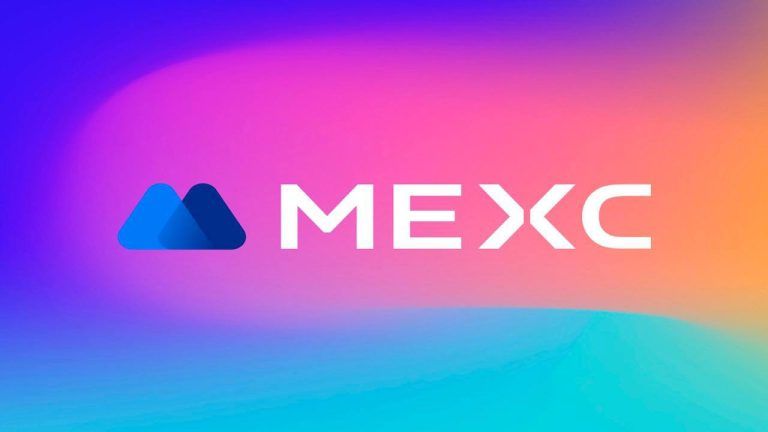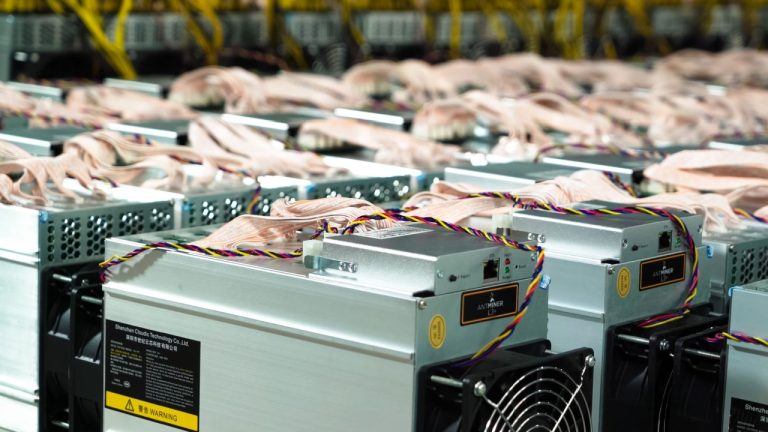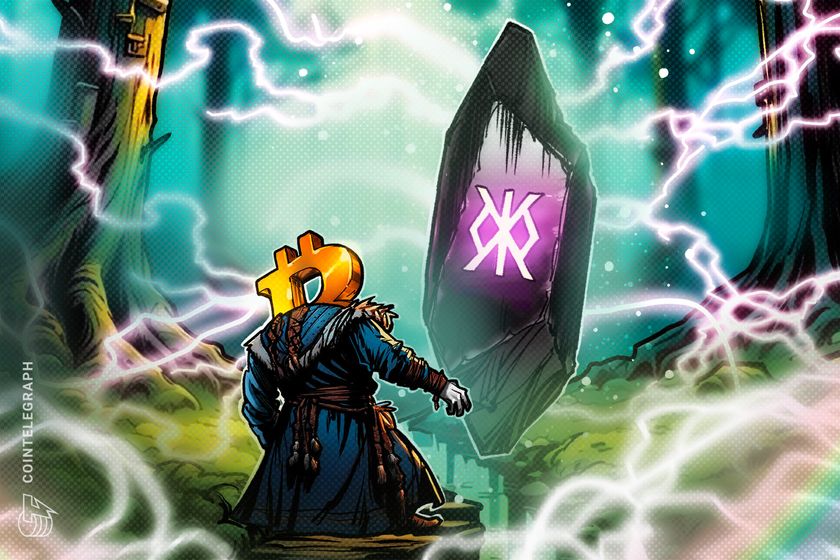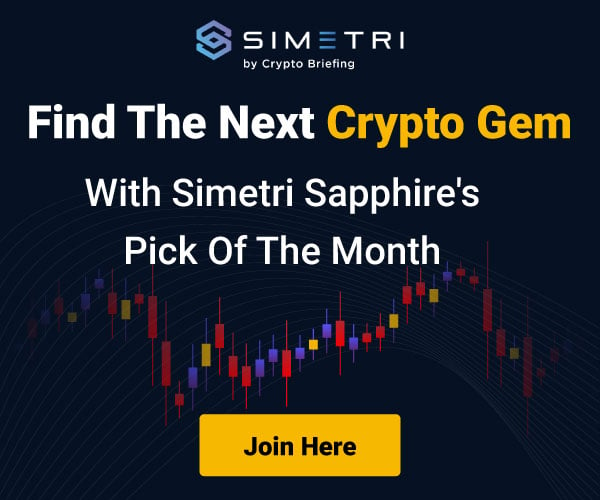
What are decentralized prediction markets?
Share this article
Decentralized prediction markets are blockchain-based platforms where users bet on future events without intermediaries. Here’s what you need to know:
- Use blockchain and smart contracts to operate autonomously
- Allow betting on various outcomes like politics, sports, finance
- Typically use cryptocurrency tokens for trading
- Aim to harness “wisdom of the crowd” for accurate predictions
Key features:
| Feature | Description |
|---|---|
| Decentralized | No central authority controls the market |
| Transparent | All bets and market data are public |
| Low fees | Reduced costs due to no intermediaries |
| Global access | Anyone with internet can participate |
| Censorship-resistant | Difficult for governments to shut down |
Popular platforms:
- Polymarket: Operates on Ethereum with Polygon Layer-2, allows bets on a wide range of real-world events.
- Augur: Ethereum-based, allows user-created markets
- TotemFi: Uses staking system, no loss of funds on wrong predictions
Challenges include legal uncertainties, data reliability issues, and potential market manipulation. Despite limitations, these markets show promise for predicting outcomes in finance, politics, and other fields.
2. Basics of decentralized prediction markets
2.1 Definition
Decentralized prediction markets are online platforms that use blockchain technology. They let people bet on future events without middlemen. These markets use group knowledge to guess how likely different outcomes are. They work on blockchain, which makes them open, unchangeable, and hard to shut down.
Key parts of decentralized prediction markets:
- Built on blockchain
- Run by smart contracts
- Use tokens for betting
- Allow direct trading between users
2.2 Main features
Decentralized prediction markets have several key features:
| Feature | What it means |
|---|---|
| No central control | No single group runs the market |
| Open to all | Anyone with internet can join |
| See-through | All bets and market info are public |
| Hard to stop | Governments can’t easily shut them down |
| Cheap to use | Lower fees than regular markets |
| Self-running | Smart contracts handle all tasks |
These features make prediction markets more open and fair. People can bet on many things, from politics to money, while staying private and safe.
Blockchain makes sure bets can’t be changed once placed. This helps users trust the system more.
Many of these markets have their own tokens for betting. This lets them work well with other blockchain money apps, making them more useful.
3. How these markets operate
3.1 Blockchain and smart contracts
Decentralized prediction markets use blockchain and smart contracts to work on their own and openly. Blockchain keeps a record that can’t be changed, showing all market activities. Smart contracts are computer programs that run the market without needing people in the middle.
Here’s how blockchain and smart contracts help these markets:
| Feature | What it does |
|---|---|
| Can’t be changed | Keeps bet records safe |
| Open to see | Anyone can view market activities |
| Runs itself | Smart contracts handle betting and results |
| Keeps things safe | Uses special codes to protect user money and info |
Smart contracts also set up new markets and decide who wins bets based on real events.
3.2 Using tokens to join in
To join these markets, you usually need special tokens. These tokens do different jobs:
- For betting
- To add money to markets and earn fees
- To vote on changes to how the market works
- To get rewards for good guesses
Using tokens helps these markets work well with other online money apps.
3.3 Starting and ending markets
Here’s how markets start and finish in these systems:
| Step | What happens |
|---|---|
| 1. Create market | Someone suggests a new thing to bet on |
| 2. Add money | People put in money so others can bet |
| 3. Betting time | Users place bets on what they think will happen |
| 4. Get real info | Trusted sources tell what really happened |
| 5. Pay out | Computer program gives money to winners |
This way of doing things is fair and doesn’t need people to run it. But it’s important that the info about what really happened is correct.
4. Parts of decentralized prediction markets
4.1 Who’s involved
Decentralized prediction markets have several key players:
| Player | Role |
|---|---|
| Market Creators | Suggest new markets and set up events to bet on |
| Traders | Buy and sell shares based on what they think will happen |
| Liquidity Providers | Add money to markets so others can trade |
| Oracles | Give real-world info to decide who wins |
| Token Holders | Own the market’s special coins and vote on changes |
4.2 Oracles and data sources
Oracles are important in these markets:
- They connect the blockchain to outside info
- They make sure the right info is used to end bets
- They help keep the markets fair and correct
Types of oracles:
| Type | What it is | Used for |
|---|---|---|
| One source | One trusted place for info | Sports scores |
| Many sources | Info from different places | Big money news |
| People-based | Info from many people | Things people decide |
| Computer-based | Info from machines | Stock prices, weather |
The type of oracle used can affect how much people trust the market.
4.3 How decisions are made
Here’s how things work in these markets:
1. Starting a market:
- People suggest new things to bet on
- Everyone votes on which bets to allow
2. Betting time:
- People buy and sell based on what they think
- Prices change as people bet
3. Finding out what happened:
- Oracles tell what really happened
- Computers use this info to end the bet
4. Giving out money:
- Winners get paid
- People who added money to the market get some too
5. Big choices:
- People with special tokens vote on big changes
This way of doing things helps keep everything open and fair, without needing someone in charge.
5. Benefits of these markets
Decentralized prediction markets have several key advantages over regular ones:
5.1 Hard to stop or control
These markets are spread out, making them tough to shut down:
- No one group can close or change the market
- People from anywhere can join
- Users can bet on any topic without worry
- Less likely to be stopped by governments
This lets people bet more freely on many different things.
5.2 Open for everyone
Anyone can use these markets:
- You just need internet to join
- No bank account or credit check needed
- Easier to start than old-style markets
- People from all over can add their ideas
More people joining means better guesses and more money in the markets.
5.3 Cheaper and more money to trade
These markets can save users money:
| Benefit | How it helps |
|---|---|
| Lower costs | No middle-men means less fees |
| More trading | Open all day, every day |
| Fair prices | Computers keep prices competitive |
| Less price change | Lots of money in the market keeps prices steady |
All this makes trading cheaper and easier for everyone.
5.4 Clear and unchanging records
Blockchain keeps everything open:
- Anyone can check all bets and results
- Old info can’t be changed or erased
- People trust the market more
- Easy to look at how the market worked before
This openness makes people feel better about using the market.
6. Problems and limits
Decentralized prediction markets have some issues and limits:
6.1 Legal concerns
These markets often face legal problems:
| Issue | Details |
|---|---|
| Unclear rules | Many countries don’t know how to classify these markets |
| Possible illegal activity | Some see them as unlawful betting or uncontrolled trading |
| Hard to follow laws | Tough to check users’ identities and stop money crimes |
| User risks | People might break laws by using these markets |
6.2 Data problems
Getting the right information is key:
- Wrong data can lead to incorrect results
- Even spread-out systems can have weak points
- Hard to judge complex events accurately
- Arguments about results can make users lose trust
6.3 Market cheating risks
These markets can still be tricked:
- Rich users might change prices
- Some people might use secret info to win
- Market makers and bettors might work together unfairly
- Bad people could use flaws in the computer code
6.4 New tech issues
As a new system, these markets face some problems:
| Problem | Effect |
|---|---|
| Not enough traders | Can make guesses less accurate and prices jump around |
| Hard to use | Regular people might find it too complex |
| Slow at times | Blockchain limits can make fees high when busy |
| Doesn’t work with other systems | Hard to use across different platforms |
These issues need fixing for more people to use these markets and for them to work better.
7. Well-known platforms
7.1 Top platforms
Two big names in decentralized prediction markets are:
1. Polymarket
- Operates on Ethereum with Polygon Layer-2 for scalability.
- Allows bets on various real-world events like politics, sports, and entertainment.
- Users deposit USDC, buy outcome shares, and trade them.
- No KYC checks, providing self-custody of wallets.
- Faced regulatory issues but continues to operate internationally.
- Augur
- Uses Ethereum’s ERC-20 system
- Users can make their own betting markets
- Low costs for users
- People who start markets can earn money from fees
3. TotemFi
- Uses a staking system for bets
- You don’t lose money if your guess is wrong
- Users work together to earn rewards
- Pays out in Bitcoin and its own TOTM coin
7.2 How they compare
Here’s how Augur, TotemFi, and Polymarket stack up:
| What to look at | Augur | TotemFi | Polymarket |
|---|---|---|---|
| How it works | Uses Ethereum | Uses staking | Uses Ethereum with Polygon Layer-2 |
| Who makes markets | Users | The platform | Users |
| Costs | Low | Not clear | Low |
| What happens if you’re wrong | You might lose money | You don’t lose money | You might lose money |
| How you earn | From trading fees | By working with others | From trading fees |
| What you can earn | Platform coins | Bitcoin and TOTM coins | USDC |
Augur lets users create their own markets and has low fees. This is advantageous for those who want to bet on a variety of topics.
TotemFi doesn’t take your money if you guess wrong and pays out in Bitcoin, which can be appealing to some users.
Polymarket operates on Ethereum with Polygon Layer-2, allowing bets on a wide range of real-world events. Users can earn USDC, and the platform is known for its scalability and reduced transaction costs.
Both Augur and TotemFi have unique features that cater to different user preferences, while Polymarket stands out for its technological enhancements and broad event coverage. As more people use these markets, we can expect further improvements and innovations.
8. Real-world uses
Decentralized prediction markets are used in many areas. Let’s look at how people use them.
8.1 Guessing money trends
People use these markets to guess what might happen with money. They can help:
- Predict how stocks might move
- Guess if prices will go up or down
- Show what many people think about money matters
Traders can use this info to make choices about buying and selling.
8.2 Betting on politics
These markets are good for guessing about politics. People bet on:
- Who might win elections
- What new laws might pass
- Other big political events
Sometimes, these markets guess better than regular polls.
8.3 Sports betting
Sports fans like these markets because:
- They can bet on many different sports
- The fees are often lower
- The odds can be better than regular betting sites
8.4 New ways to check for problems
Companies use these markets to spot possible issues. They help:
- See what might go wrong with projects
- Get ideas from many workers
- Make better choices about risks
| Use | How it helps |
|---|---|
| Money Guessing | Shows what many people think about stocks and prices |
| Politics Betting | Can guess election results and new laws |
| Sports Betting | Offers many games to bet on with lower fees |
| Problem Checking | Helps companies spot issues before they happen |
As more people use these markets, we might see them used in new ways. They’re good at getting many people’s ideas quickly and clearly.
9. Effects on old-style markets
Decentralized prediction markets are changing how regular markets work. Let’s see how they’re making things different.
9.1 Changing regular platforms
These new markets are making old ones change:
| Change | How it happens |
|---|---|
| More open | Old markets show more about how they work |
| Lower costs | Old markets charge less to keep up |
| More choices | Old markets offer more things to bet on |
| Easier to use | Old markets make their websites better |
9.2 Making markets work better
New markets are helping all markets do better:
| Improvement | What it means |
|---|---|
| More money to trade | People from all over can join in |
| Better guesses | Lots of people guessing together often get it right |
| Faster updates | New info changes prices quickly |
| Less cheating | Hard for one person to trick the whole market |
Here’s how new and old markets compare:
| What to look at | Old markets | New markets |
|---|---|---|
| How open they are | Not very | Very |
| How much they cost | Often more | Usually less |
| How much money to trade | Can be less | Often more |
| How good the guesses are | Okay | Often better |
| How fast they work | Can be slow | Usually fast |
| How easy to cheat | Easier | Harder |
As these new markets grow, they’ll keep making all markets better. This helps everyone who uses them.
10. What’s next
Let’s look at what’s coming for decentralized prediction markets and how they might change things.
10.1 New tech improvements
New tech will make these markets work better:
| Improvement | What it does |
|---|---|
| Blockchain | Makes things more open and safe |
| Smart Contracts | Runs markets on its own |
| AI and Machine Learning | Helps people make better guesses |
| Mobile Apps | Makes it easier to use on phones |
These changes will help more people use these markets.
10.2 Working with other online money tools
Prediction markets will work with other online money tools:
| Tool | How it helps |
|---|---|
| Different blockchains | Move money between different systems |
| Data checkers | Get better info from outside the blockchain |
| Digital art tokens | New ways to bet and earn |
| Online insurance | Protect against mistakes in the system |
This will give users more ways to use prediction markets.
10.3 More uses in different areas
These markets will be used in new ways:
| Area | What it could do |
|---|---|
| Health | Guess disease spread and treatment results |
| Weather | Predict changes and effects of new rules |
| New tech | Guess what new tech will be popular |
| Movies and TV | Predict hits and award winners |
| Sports | Better betting and guessing player success |
| Government | Better election guesses and law effects |
As these markets grow, they’ll help people make choices and plan in many areas.
The future looks good for decentralized prediction markets. They’ll likely get better tech, work with more tools, and be used in new ways. As rules change, finding a balance between new ideas and following laws will be important for these markets to keep growing.
11. Wrap-up
11.1 Main points
Decentralized prediction markets are changing how we use group knowledge. Here’s what’s important:
| What’s new | How it helps |
|---|---|
| Blockchain | Makes things open and safe |
| Smart contracts | Runs markets without people |
| More uses | Not just for sports and politics anymore |
| Easier to use | More people can join in |
| Works with AI | Helps make better guesses |
These markets are changing how we make choices, handle risks, and plan for the future in many areas.
11.2 Role in future money
Decentralized prediction markets will be big in how we handle money:
| What they’ll Do | Why it matters |
|---|---|
| Better guessing | Many people’s ideas help see what might happen |
| More people join in | Different views make guesses more right |
| New rules needed | To keep things fair and working well |
| Work with other online money | Help manage risks and invest |
| Push new ideas | Make tech better and find new ways to use it |
As these markets grow, they’ll help us make smarter choices about money and other things. They’ll change how we look at what might happen and deal with risks in our connected world.
FAQs
What are DeFi prediction markets?
DeFi prediction markets are online platforms where people bet on future events. They use blockchain to work without middlemen. Here’s what makes them special:
| Feature | What it means |
|---|---|
| No central control | Runs on blockchain, not by one company |
| Self-running | Computer programs handle bets and payouts |
| Uses special coins | People bet with crypto or platform tokens |
| Anyone can start a market | Users can make bets on many topics |
| Cheap to use | Costs less than old-style betting sites |
Two well-known DeFi prediction markets are:
- Augur: Uses Ethereum and lets users create their own markets
- TotemFi: Uses staking and doesn’t take your money if you guess wrong
These markets cover many topics like sports, politics, money trends, and world events.
People use DeFi prediction markets because:
- They’re open to everyone
- They cost less to use
- They offer many things to bet on
- They work without needing a company to run them
As more people use these markets, they might change how we think about betting and guessing future events.
Share this article
Go to Source
Author: Editorial Team



